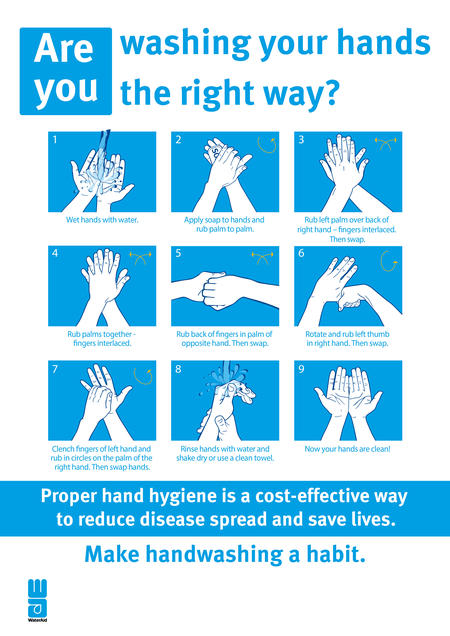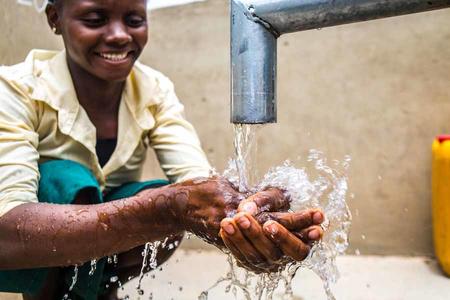How can I protect myself from coronavirus?

The best way to protect yourself from the coronavirus disease (COVID-19) is to practice good hygiene habits like handwashing with soap at critical times.
There are currently no approved treatments or vaccines for COVID-19, but handwashing with soap can help reduce the spread and protect yourself from coronavirus.
Our hygiene experts know a lot about how to wash your hands properly, to help prevent the spread of many illnesses, including coronavirus. They have provided information on how to wash your hands effectively in order to protect yourself and your loved ones from the infectious disease.
Which method of handwashing removes the most bacteria?
Washing both hands with soap and water thoroughly and frequently is the most effective way to remove bacteria.
Rub both hands together vigorously using soap and water until a soapy lather appears. Continue for at least 20 seconds - as long as it takes to sing happy birthday twice.
Make sure you cover:
- Palm to palm
- The back of your hands
- In between your fingers
- The back of your fingers
- Your thumbs
- The tips of your fingers
What diseases could be prevented if we wash our hands properly?
Handwashing with soap can prevent the spread of diseases like COVID-19, slow down the spread of Ebola and can reduce the likelihood of contracting blinding trachoma. It can also help prevent life-threatening illnesses such as diarrhoeal diseases, cholera, pneumonia and intestinal worms.
These illnesses are very common in the countries where we work, amongst communities without decent toilets and clean water. For people who have no choice but to go to the toilet in the open, or drink water from unprotected and unsafe sources, bacteria can easily spread.
Diarrhoea caused by dirty water and poor toilets kills a child under 5 every 2 minutes. That's why it's so important that everyone, everywhere has all three basics: clean water, decent toilets and good hygiene.
Is there any difference in washing hands with cold water and hot water?
There is no evidence that washing your hands with cold or hot water makes a difference to killing bacteria. The important thing is to use soap, whatever the temperature of the water.
Can you wash your hands with just alcohol?
No. You should wash your hands with soap and water. If water and soap aren't available, use an alcohol based hand-rub.
Can washing your hands too much be dangerous?
No. Even after you've washed your hands, you can pick up new bacteria and germs and re-contaminate your hands - so it's really important to keep on washing your hands with soap and water throughout the day. Handwashing is only a good thing.
Should you wash your hands after blowing your nose?
When you sneeze or cough you release droplets into the air or onto your hands, which is one of the ways viruses spread - so try and do it into a tissue.
Always wash your hands after sneezing, coughing, or blowing your nose, to remove any droplets that may have landed on them.
Should we wash our hands after using hand sanitiser?
You should only use hand sanitiser if water and soap aren't available, like when you're travelling or outside. If you do use it, you only need to wash your hands again if you think you have exposed yourself to more germs, for example, by touching a surface.

